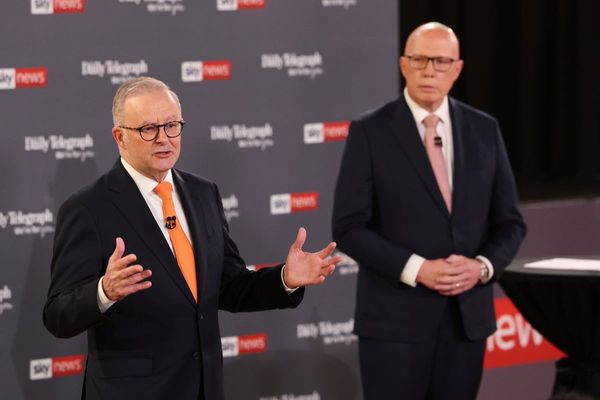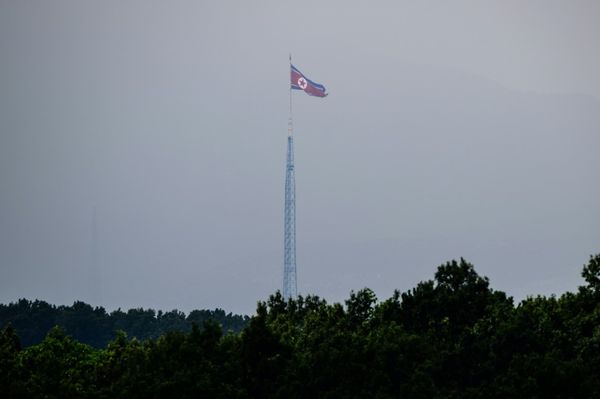
With Ukraine set to mark its independence from Soviet rule in 1991 and six months since Russian forces invaded, President Volodymyr Zelenskiy warned of the risk of "brutal strikes" by Russia and said any attack would provoke a powerful response.
Zelenskiy, who has led his country's resistance since Russian troops poured over the border on Feb. 24, also said Ukraine would restore its rule over the Crimea region - annexed by Russia in 2014 in a precursor to this year's invasion.

Zelenskiy had warned at the weekend that Moscow might try "something particularly ugly" in the run-up to Wednesday's Independence Day.
"They will receive a response, a powerful response," he told a news conference on Tuesday. "I want to say that each day ... this response will grow, it will get stronger and stronger."
In an evening video address hours later, he said: "Tomorrow is a important day for all of us - it is also, unfortunately, important for our enemy. We must be aware that disgusting Russian provocations and brutal strikes are possible tomorrow."

Allied Western officials were also concerned that Russia was preparing to attack the capital Kyiv once again.
The United States said it believed Russia would target civilian and government infrastructure in the next few days. U.S. citizens should leave Ukraine "now" by their own means if it was safe to do so, the U.S. Embassy said.
On the battlefields, Russian forces carried out artillery and rocket strikes in the Zaporizhzhia region in southeastern Ukraine, where fighting has taken place near Europe's largest nuclear power plant, Ukraine's military said.

Russia and Ukraine have blamed each other for strikes on the plant, which was captured by Russian forces in March.
The U.N. nuclear watchdog will visit the plant within days if talks to gain access succeed, it said on Tuesday. It said Ukraine had informed the agency that shelling had damaged plant infrastructure including laboratory and chemical facilities.
FEARS LURK BEHIND CALM IN KYIV

Kyiv has only rarely been hit by Russian missiles since Ukraine repelled a ground offensive to seize the capital in March.
The mood was calm on Tuesday, with many people still walking Kyiv's streets, but signs of increased threat could be felt.
Some feared fierce Russian retaliation for a spate of explosions in Crimea that Kyiv has not claimed responsibility for, while coyly hinting its forces had played a part.

Russian air defences shot down an unspecified number of Ukrainian drones near the Crimean city of Sevastopol on Tuesday night, Sevastopol governor Mikhail Razvozhayev said in a statement. Reuters could not confirm the battlefield reports.Authorities told Ukrainians to work from home where possible from Tuesday to Thursday, also urging people to take air raid warnings seriously and seek shelter when sirens sound.
The Kyiv city administration banned large public gatherings until Thursday, fearing that a crowd of celebrating residents could become a target for a Russian missile strike.
Jitters about sudden Russian attacks rose further after the killing of Darya Dugina, daughter of a prominent Russian ultra-nationalist, in a car bombing near Moscow on Saturday. Moscow blamed the killing on Ukrainian agents, a charge Kyiv denies.

CRIMEA FORUM
Meanwhile, leaders of dozens of countries and international organisations were taking part in a so-called Crimea Platform - most of them by video - in solidarity with Ukraine on the six-month anniversary of the invasion.
"To overcome terror, it is necessary to gain victory in the fight against Russian aggression," Zelenskiy, dressed in his customary military gear, told delegates.
He told reporters separately: "We will take back Crimea - it is our territory. We will do this in any way which we decide. We will decide this by ourselves, without consultation with any other country in the world."
Zelenskiy also said Ukraine would not agree to any proposal to freeze current front lines in order to "calm" Moscow, which now controls about 22% of Ukraine including Crimea.
He urged the world not to show fatigue with the war, saying this would pose a threat to everyone.
A U.S. official said Washington would announce a new $3 billion weapons package for Ukraine to coincide with its independence day in what would be the single largest tranche to Kyiv since Russia invaded.
Germany also plans to deliver further arms, including air-defence systems, rocket launchers and precision munitions, to Ukraine worth over 500 million euros ($500 million) in 2023, a source told Reuters on Wednesday.
Kyiv has for months been pressing Western supporters to provide it more sophisticated weaponry to counter Russia's huge edge in heavy firepower.
Russia sent its troops over the border in what it calls a "special military operation" saying it wanted to demilitarise its neighbour and protect Russian-speaking communities. Ukraine and its Western allies accuse Moscow of waging an unjustified, imperial-style war of aggression.
Six months on from the Russian invasion, which has caused thousands of deaths, forced over a third of Ukraine's 41 million people from their homes and destroyed whole cities, the conflict is largely locked in a stalemate.
In addition to Crimea, Russian forces control a large swathe of the south, including along the Black Sea and Sea of Azov coasts, and chunks of the eastern Donbas region. Peace prospects look almost non-existent.
(Editing by Alison Williams)







